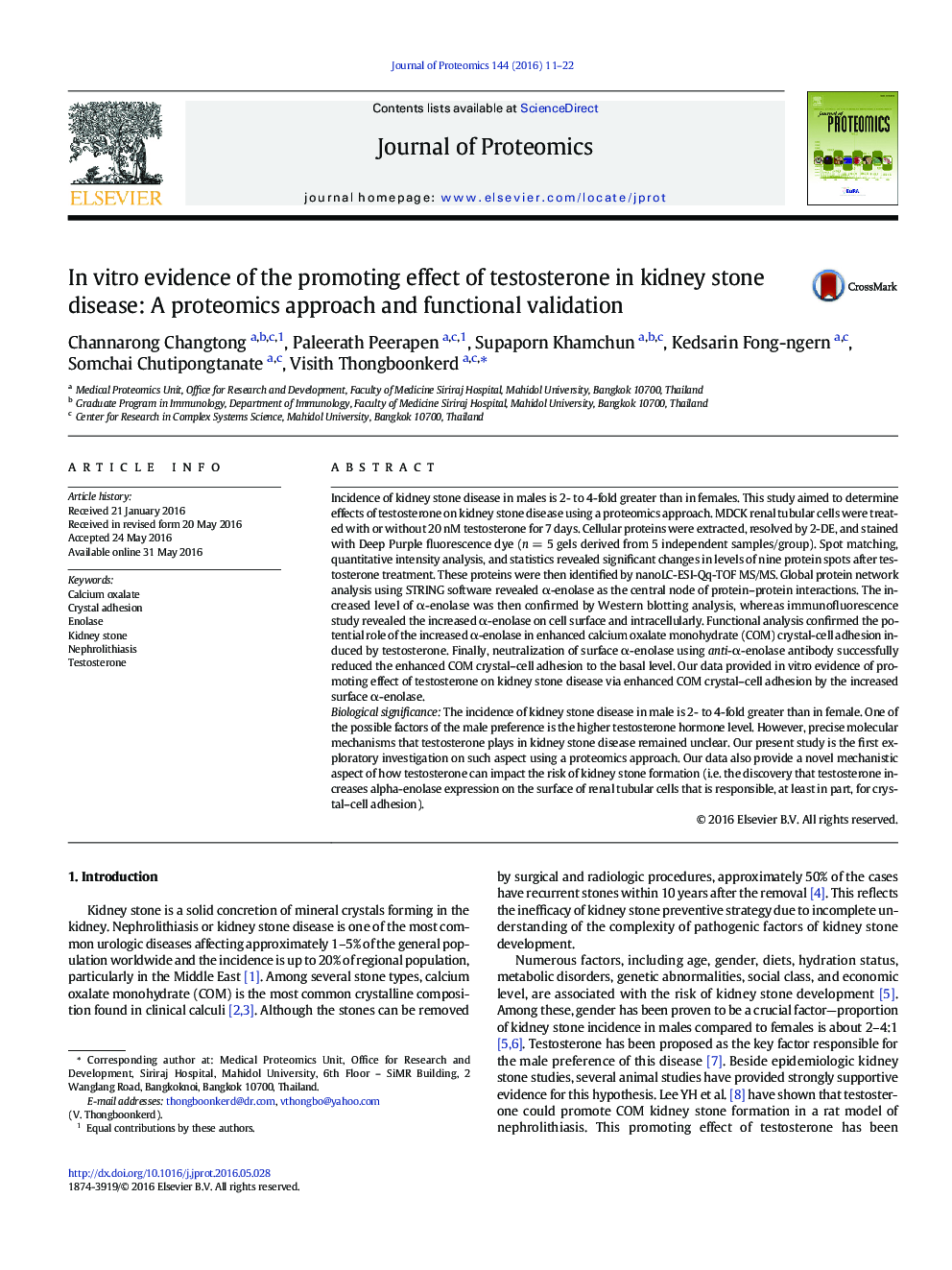| کد مقاله | کد نشریه | سال انتشار | مقاله انگلیسی | نسخه تمام متن |
|---|---|---|---|---|
| 1225120 | 1494737 | 2016 | 12 صفحه PDF | دانلود رایگان |
• Levels of nine proteins were significantly changed after testosterone treatment.
• α-enolase was the central node of protein–protein interactions by STRING analysis.
• The increased level of whole cell α-enolase was confirmed by Western blot analysis.
• IF study revealed the increased α-enolase on the cell surface and intracellularly.
• Blocking surface α-enolase reduced crystal–cell adhesion to the basal level.
Incidence of kidney stone disease in males is 2- to 4-fold greater than in females. This study aimed to determine effects of testosterone on kidney stone disease using a proteomics approach. MDCK renal tubular cells were treated with or without 20 nM testosterone for 7 days. Cellular proteins were extracted, resolved by 2-DE, and stained with Deep Purple fluorescence dye (n = 5 gels derived from 5 independent samples/group). Spot matching, quantitative intensity analysis, and statistics revealed significant changes in levels of nine protein spots after testosterone treatment. These proteins were then identified by nanoLC-ESI-Qq-TOF MS/MS. Global protein network analysis using STRING software revealed α-enolase as the central node of protein–protein interactions. The increased level of α-enolase was then confirmed by Western blotting analysis, whereas immunofluorescence study revealed the increased α-enolase on cell surface and intracellularly. Functional analysis confirmed the potential role of the increased α-enolase in enhanced calcium oxalate monohydrate (COM) crystal-cell adhesion induced by testosterone. Finally, neutralization of surface α-enolase using anti-α-enolase antibody successfully reduced the enhanced COM crystal–cell adhesion to the basal level. Our data provided in vitro evidence of promoting effect of testosterone on kidney stone disease via enhanced COM crystal–cell adhesion by the increased surface α-enolase.Biological significanceThe incidence of kidney stone disease in male is 2- to 4-fold greater than in female. One of the possible factors of the male preference is the higher testosterone hormone level. However, precise molecular mechanisms that testosterone plays in kidney stone disease remained unclear. Our present study is the first exploratory investigation on such aspect using a proteomics approach. Our data also provide a novel mechanistic aspect of how testosterone can impact the risk of kidney stone formation (i.e. the discovery that testosterone increases alpha-enolase expression on the surface of renal tubular cells that is responsible, at least in part, for crystal–cell adhesion).
Figure optionsDownload high-quality image (233 K)Download as PowerPoint slide
Journal: Journal of Proteomics - Volume 144, 20 July 2016, Pages 11–22
